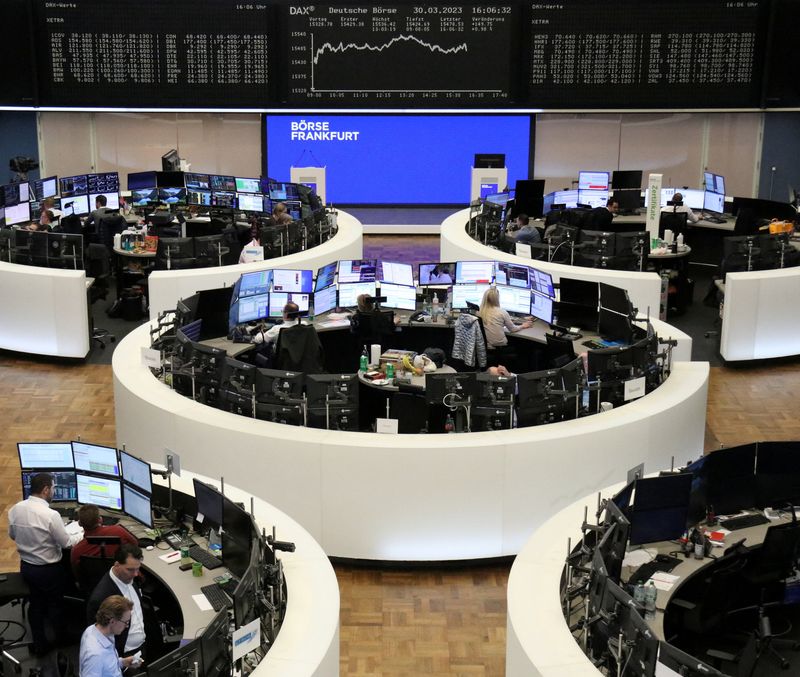By Wayne Cole
(Reuters) – A look at the day ahead in European and global markets from Wayne Cole.
Oil prices have stolen the show in Asia on Monday, and not in a good way if you care about global inflation and consumer spending power.
The Organization of the Petroleum Exporting Countries and their allies including Russia (OPEC+), stunned markets by announcing production cuts of about 1.16 million barrels per day, preempting a meeting of ministers due later on Monday.
Brent and U.S. crude futures both jumped more than 5%, though they were off the early peaks. Analysts assumed OPEC+ was trying to put a floor under prices, around $80 a barrel for Brent and $75 for the U.S. flavour of oil, and Goldman Sachs quickly raised its forecast to $95 a barrel for year end.
Then again, some thought it might also suggest producers were worried that demand was missing bullish forecasts given physical cargoes are arranged months in advance of delivery.
If the price increase sticks, it will be bad news for headline inflation and will leave a sour taste after Friday’s core U.S. Personal Consumption Expenditures data seemed to bode well for a cooling of cost pressures.
The market responded by pushing bond yields and the dollar higher, while paring expectations for how much the Federal Reserve may cut rates later in the year. Futures have around 38 basis points of easing priced in by December, compared to more than 100 basis points during the banking crisis of mid-March.
Yet, higher petrol prices are also a tax on consumers and have a close correlation to consumer sentiment, especially in the United States. It’s also unlikely to be taken well by the White House given the political pain of higher gas prices.
Concerns about consumer demand were not helped by the Caixin/S&P survey of Chinese manufacturing in March that badly missed forecasts at 50.0, largely due to a weakness in export orders.
This survey concentrates on smaller firms and exporters and suggests foreign demand is a headwind for China even as the domestic service sector roars back.
Export-reliant Japan and South Korea also saw manufacturing activity contract in March. Both are major importers of energy, so they will not welcome the spike in oil.
Key developments that could influence markets on Monday:
– The Joint Ministerial Monitoring Committee (JMMC) of the OPEC and non-OPEC countries meets via videoconference
– March PMIs for Europe, while the U.S. ISM survey of manufacturing is seen easing a touch to 47.5. Auto sales for March will offer an early read on consumer demand
– Federal Reserve Board Governor Lisa Cook speaks on the U.S. economic outlook and monetary policy
(Editing by Jamie Freed)
